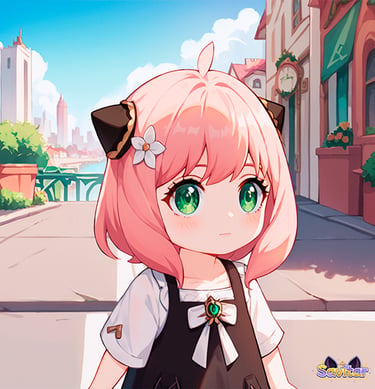🔥Access +100 Characters NSFW Hardcore for just $9.99 Monthly 😈
The Genshin NSFW Artist Arrest: A Year Later, What Does It Really Say About Creative Freedom?
Explore the arrest of Genshin NSFW artist Shirakami in China and how the law targets monetizing explicit content. A year later, the debate on creative freedom continues.
NEWS
Savitar
9/25/20244 min read


It’s 2024, and here we are, looking back at one of the most bizarre legal stories to hit the Genshin Impact community: the arrest of Shirakami, the NSFW 3D artist whose work landed him in a legal mess in China. Yep, we’re still talking about this—because, believe it or not, the case still resonates with a lot of questions about art, censorship, and just how far governments are willing to go to control what people create, consume, and profit from.
Back in July 2023, the news of Shirakami’s arrest seemed to catch the world off guard. Why? Because it wasn’t just about NSFW art—plenty of that exists online without people getting sent to prison for it. The core issue seemed to be the combination of explicit fan art and the use of platforms like Patreon to generate income from it. In short: art meets money, and the legal system suddenly decides it has a problem.
Old News, But Still Relevant
So why are we bringing this up in 2024? Isn’t this a case that’s come and gone? Sure, it’s old news by now, but the broader implications of this arrest still hang over the NSFW and fan art communities like a dark cloud. It’s a reminder that artistic expression—especially when it involves characters from mega-popular games like Genshin Impact—exists in a precarious space, where legal systems can swoop in at any time and, for lack of a better word, ruin lives.
Let’s not sugarcoat it: Shirakami faced up to 10 years in prison. For drawing art based on fictional characters. Think about that for a second. It raises the question of whether certain governments truly believe that fan art, especially of a sexual nature, can be that dangerous. Is this about protecting public morality? Or is it more about exerting control over content creation, especially when profit gets involved?
The Irony of China’s Laws: NSFW Art is Okay... Until You Make Money
Here’s where the absurdity hits hard. In China, according to reports, NSFW content is technically illegal—but it seems the real issue arises when you try to monetize it. So, let’s get this straight: you can create the content, but the second you try to make a living off it, you’re stepping into "criminal" territory.
This isn’t just a law about morality; it’s about control. Shirakami’s use of Patreon, a foreign platform, to profit from his art was what really sealed his fate. The Chinese government doesn’t just frown upon explicit content, it outright forbids making money from it. Because, of course, it's all good as long as there's no financial gain involved, right? But once you mix money into the equation—especially on a platform that’s outside of their jurisdiction—the situation escalates.
The irony here is pretty rich: China seems less concerned with the fact that Shirakami created NSFW art and more worried that he dared to make a profit from it. So, what are we really talking about here? Artistic crime, or financial crime? It’s hard to tell at this point. And the lesson seems to be: draw whatever you want, just don’t expect to pay your rent with it if you live in China.
The Role of Patreon: A Double-Edged Sword?
Part of what made this case stand out was the role of Patreon, a platform that many NSFW creators rely on to support their work. Shirakami wasn’t just posting his art for free—he was making money, and apparently, that’s what crossed the line. It’s ironic, isn’t it? Patreon has been a lifeline for independent artists, allowing them to bypass the traditional gatekeepers of the creative world. But as we saw with this case, it’s also a massive target for legal systems that want to clamp down on content they don’t approve of.
One year later, creators continue to ask themselves: "Could this happen to me?" If you’re making NSFW content based on popular media, are you walking a legal tightrope? Well, it depends. In some parts of the world, the answer is "yes," and it’s not just China where these kinds of cases arise.
The Bigger Picture: Censorship in the Digital Age
Looking back, Shirakami’s arrest was part of a larger trend we’ve seen in recent years—governments and platforms cracking down on content they deem inappropriate. Whether it’s fan art, NSFW illustrations, or even memes, the lines between acceptable art and illegal content are becoming increasingly blurry. And while we could shrug it off as "just a China thing," let’s be honest—content censorship is alive and well across the globe. The real question is how far it will go.
If we’ve learned anything from this case, it’s that artistic freedom is more fragile than we think. The line between self-expression and criminal activity seems to shift depending on who’s drawing it (pun intended).
Where Do We Go From Here?
In 2024, the case of Shirakami serves as a chilling reminder for artists everywhere—whether you’re working with NSFW content or not. Creative freedom doesn’t always mean legal freedom, and the two can clash in some unexpected and unsettling ways. But hey, as long as you’re not drawing too much attention with your fan art, you’re probably safe... for now.
So, what’s the takeaway? The world of NSFW art is full of risks, especially when it intersects with intellectual property, platform policies, and governments that aren’t too keen on letting people profit from fictional characters. The arrest of Shirakami in 2023 may be old news now, but it’s a story that still resonates with those of us who care about artistic freedom and the murky waters of online content.


